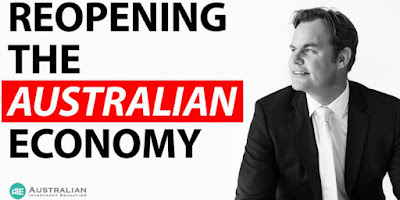Initial Public Offerings – A Risky Reward
When a private company decides to go public and list through an Initial Public Offering (IPO), many investors salivate at the prospect of turning water into wine – a risk vs. reward decision that can either be extremely lucrative or a devasting disaster.
IPO’s – What are they
An Initial Public Offering occurs when a private company decides to list on the stock market as a public company.
Their reasons for this are mostly always the same – to raise more capital in order to fuel growth and expansion. When a company decides to IPO, the stock price initially set based on their expected future earnings along with the number of shares they plan to issue – often accompanied by a large investment bank throughout the entire process.
Turning water into wine
The million dollar decision – which IPO is going to make you a fortune and which one is going to be a disaster. With IPO’s, you either get it really right or you get it really wrong – like betting on red or black at the casino as host Andrew Baxter describes it. Such prospect, to most investors, often appears as a grand-slam homerun on the surface, but in reality is actually a total flop. Here are a few case studies to support that point.
Uber – your Saturday night special
Unless you are living under a rock most people have probably used the ultra- convenient ride-share conglomerate, Uber. This Silicon Valley start-up pioneered a whole new ball game in the ride-share industry, cementing themselves as the first-movers. Despite what most think, Uber’s business has actually NEVER turned a profit. Listing on NASDAQ in 2019 at $45 the stock now trades at well below the $40 level. Clearly, buying into a vision of where a business wants to go isn’t always as lucrative as one might think.
The Luckin Coffee case
As the main competitor to Starbucks across Asia. This Chinese conglomerate since day one has been on a mission to take back some of that super lucrative coffee market share. Lucking Coffee IPO’d at around $20 in 2019 and now sits at around the $48 mark. A near 140% increase since their initial listing. As host Andrew Baxter puts it – Luckin Coffees success may be due to the short-comings of its competitors like Starbucks. A business that did in fact turn water into wine through their IPO.
We-work – a business with colossal exposure
The We-work case is an interesting one given. That the business merely applied to IPO in order to keep its wheels turning. Unfortunately, the numbers simply didn’t stack up. At the time of their hopeful IPO in 2019, We-work valued their company at around $47B to only have a now valuation of just $10B just a number of months later. With a lack of sales and profitability, no clear future vision and an un-realistic growth mindset, this company simply hasn’t met any of the above criteria – leaving it with colossal exposure.
Safety first
The fact of the matter is – hope is not a strategy. When it comes to making consistent returns in the stock market you have the follow a process and more importantly stick to it (Just like Andrew Baxter’s Cash Flow on Demand Strategy at https://australianinvestmenteducation.com.au).However, if you do enjoy a dance with the devil or even a punt at the casino, IPO investing may be for you. In all cases, make sure you know that business inside and out and have your risk tightly managed.

Comments
Post a Comment